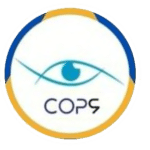Specialized in the rehabilitation of psychomotor disorders, the profession of a psychomotor therapist is however often misunderstood. In this article, we will present to you in detail this body of professionals who are part of the COP9 team, but also the training, diplomas and skills of this psychomotor specialist!

What does a psychomotor therapist do?
The psychomotor therapist is a specialist in motor, behavioral, emotional, and relational rehabilitation. They work under a medical prescription with a wide range of patients: children from a very young age, adolescents, able-bodied adults as well as those with disabilities and the elderly.
In their field of intervention, this specialist will also work with people with psychomotor disorders such as :
- DYS disorders (dyscalculia, dyslexia, dysphasia, dyspraxia, etc.) ;
- behavioral disorders website in french only(eating disorders, hyperactivity, mood disorders, etc.) ;
- ASD website in french only (autistic syndrome disorders) ;
- polyhandicap website in french only (motor deficiency and severe or profound intellectual deficiency) or plurihandicap website in french only (association of motor and/or sensory impairments of the same degree)
- neurodegenerative diseases,website in french only such as Alzheimer’s.
The first step is a psychomotor assessment where they evaluate the patient’s functional abilities (interviews, activities, tests…). This is followed by psychomotricity sessions where exercises are proposed, such as therapeutic relaxation, coordination and balance, concentration, and organization activities.
The aim of the profession of psychomotor therapist is to help the patient discover and better understand their body and mind, with its strengths and limitations, in order to find solutions to cope with difficulties.
Our psychomotor therapists are there to help you with your psychomotor therapy. The psychomotor therapist can work in hospitals, in rehabilitation centers, and can intervene in day care centers as well as in retirement homes. They can also receive consultations in their private practice.
So don’t hesitate to make an appointment at our COP9 center on our Doctolib.
What training and qualifications does a psychomotor therapist have?
The psychomotor therapist has a bachelor’s degree. Afterwards, they study for three years to obtain the State Diploma (DE). These studies are carried out in training institutes, whose entry is based on an entrance exam. It is generally necessary to pass a year of preparation for the entrance exam beforehand, or to have passed a year at the “Paces” (First year common to health studies). The future psychomotor therapist may also have obtained a degree (three years of study, in psychology, biology, etc.) and enter directly into the 2nd year of training.
Depending on the institute, access is by “Parcoursup”, based on a student record. It is also possible to register after a L1 (first year) of university studies, especially for PASS and L.AS,(website in french only) L1 STAPS or L1 in scientific subjects.
This DE will help prepare them for therapeutic education and re-education techniques. Trained in management of psychomotor disorders, they are both therapists and rehabilitators. Our COP9 psychomotor therapists are therefore professionals trained to help you master your body, improve your comportment, and accompany you in the management of your disorders in complete serenity and safety.
What are the skills and missions of a psychomotor therapist?
The psychomotor therapist will evaluate the psychomotor capacities of their patients, at all ages of life. They will then provide re-education during sessions that can be given individually or collectively.
Their missions are to :
- find the origin of psychomotor problems ;
- participate in the rehabilitation and reintegration of the patient at the psychosocial level ;
- accompany the patient as well as their relatives (family, friends, caregivers).
Their skills allow them to intervene at the heart of each patient’s personalized therapeutic treatment program. They work in collaboration with a multidisciplinary team (general practitioner, specialized physician, physiotherapist, occupational therapist, etc.). They will then contribute to the medical follow-up thanks to regular check-ups and sessions specially designed for the patient.
They will particularly use their knowledge of movement, communication, emotions, and that of representations (body, surroundings, etc.).
This practitioner knows how to adapt to the age of each person. For example, in the case of an elderly person, the psychomotor therapist will focus on memory and balance. With a teenager, they will focus on the representation of the body and the management of emotions. Reconciling the body and the mind, to give a feeling of well-being, in an atmosphere of trust between the practitioner and the patient, these are the objectives of this profession.
To conclude our article on the profession of psychomotor therapist, we would like to advise you to follow your doctor’s recommendations if they refer you or a loved one to this specialist. It is important to look after your motor skills and get rehabilitation if it is necessary.Our multidisciplinary COP9 team is available to answer your questions in the comment section of this article, but also on our social networks, Instagram and Facebook!
